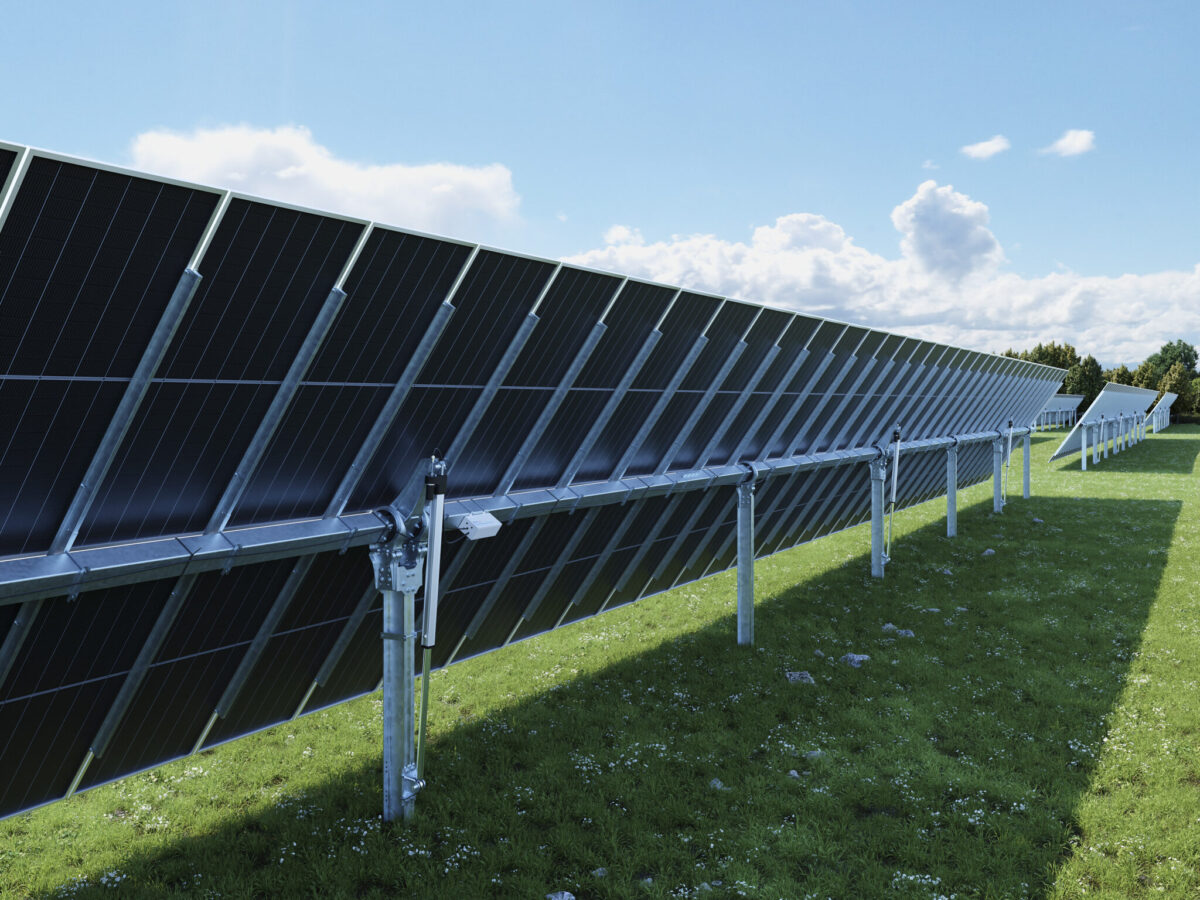On the eve of the Smart Energy Expo in Sydney, Chinese giant Trina Solar presented itself as a single supplier of solar projects and demonstrated the value of this approach in a range of large-scale PV applications.
Trina highlighted the projects yesterday in an event held in the lead up to the major clean energy event underway in the New South Wales (NSW) capital this week.
With module prices at record lows, there should be no surprise that solar manufacturers are looking for value in other places. Trina has a long track record in supplying mounting structures and battery storage system alongside its modules.
Trina is highlighting the value this capability delivers to project developers in Australia this week. In particular, it is promoting Goulburn Community Farm in NSW as being a noteworthy project.
While not particularly large, the community project is significant in that it has been supplied by Trina from the ground up. The 1.35 MW solar array is couple to a 2.2 MWh TrinaStorage Elementa battery. It also employs Trina fixed-tilt mounting structures – somewhat confusingly branded TrinaTracker Fix Origin.
The Goulburn project is owned by the Community Energy Goulburn cooperative. It was developed by Komo Energy, with the installation executed by Smart Commercial Solar.
“Community Energy 4 Goulburn and Komo Energy have worked hard for years to bring cheaper, cleaner energy to Goulburn and we’re excited to deliver this significant solar and storage project for them,” said James Duckworth, the national business development manager for Smart Commercial Solar, in a statement.
Testing revamping
Trina has also revealed a new testing project in Queensland. The project will be the first “tracking testbed” in Australia, Trina claims.
The test bed is being established at the Hills Educational Foundation, outside of Brisbane. The foundation is alongside the Hills International College, which couples golf with schooling and has a significant renewable energy component including solar, battery energy storage, and green hydrogen.
At the site, Trina is establishing a test array employing its DEG19 Vertex bifacial modules, mounted on TrinaTracker 2P trackers. The performance of the array will be analysed alongside that from a neighbouring eight-year old solar farm.
“The insights gained from this testbed will help to determine when it is economically viable to replace older solar farms with new ones,” the Trina statement reads.
At the Hills’ testing site, albedo effects will be assessed – based on a number of ground coverings, such as recycled cans, light ground coverings, and cement sheeting. The enhanced rear-side albedo as a result of the ground coverings will presumably boost power output.
The Hills College will also investigate agrivoltaic applications using the test array. In particular, it will assess if “protein-rich fungus” can be grown underneath the arrays, using “white-panted offcuts of shipping containers.”
“Agrivoltaics is something Australia’s farming community is interested to explore,” said Joseph Marinov, CEO of Hills Educational Foundation. “Creating an environment conducive for crops to grow under the solar modules will help the country’s farmers to embrace renewable energy.”
Trina now claims that 95% of the steel used in its TrinaTracker mounting systems is sourced from Australian producers.
“As solar projects become increasingly complex, having a single procurement source helps to streamline processes, allowing for faster delivery and unified after-sales service. This approach not only reduces costs but also ensures efficiency,” said Edison Zhou, Trina Solar head of Australia, New Zealand, and the Pacific Islands.
The Smart Energy Expo runs March 6-7.
This article was amended on March 7, 2024, to correct the spelling of the town Goulburn.
This content is protected by copyright and may not be reused. If you want to cooperate with us and would like to reuse some of our content, please contact: editors@pv-magazine.com.









1 comment
By submitting this form you agree to pv magazine using your data for the purposes of publishing your comment.
Your personal data will only be disclosed or otherwise transmitted to third parties for the purposes of spam filtering or if this is necessary for technical maintenance of the website. Any other transfer to third parties will not take place unless this is justified on the basis of applicable data protection regulations or if pv magazine is legally obliged to do so.
You may revoke this consent at any time with effect for the future, in which case your personal data will be deleted immediately. Otherwise, your data will be deleted if pv magazine has processed your request or the purpose of data storage is fulfilled.
Further information on data privacy can be found in our Data Protection Policy.